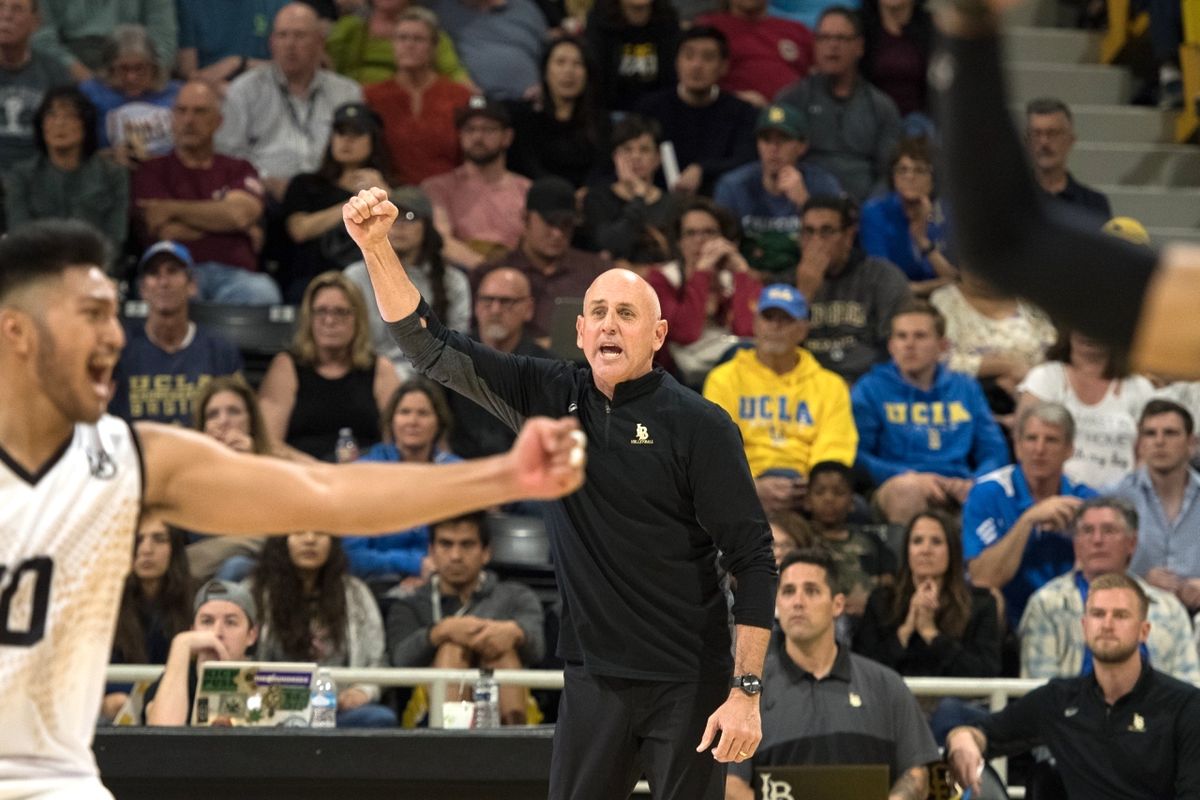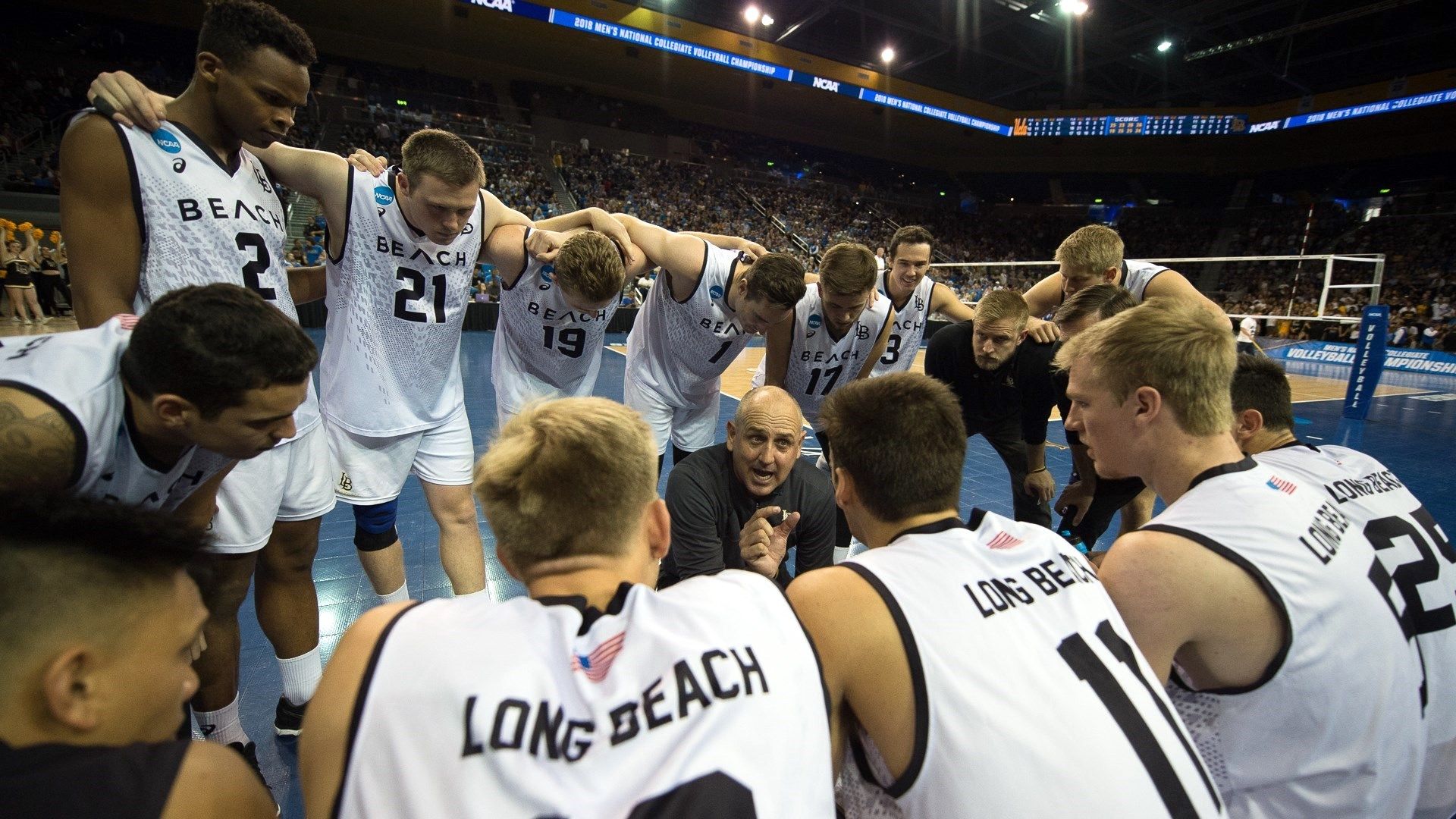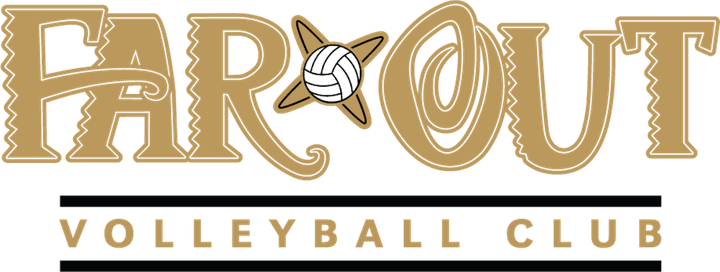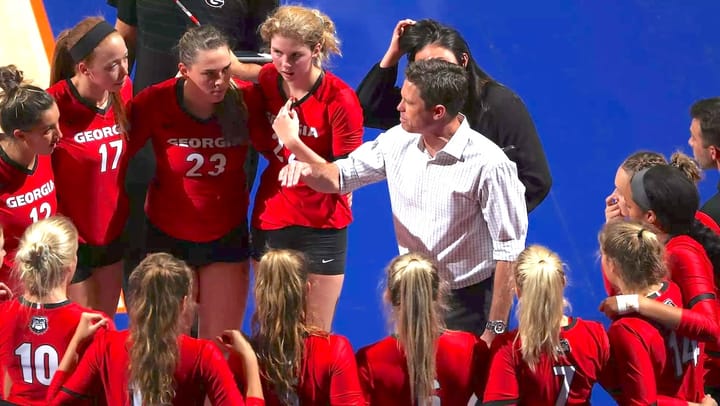27. Alan Knipe:"Our culture is by design, not by default."
Alan Knipe is the head coach of Long Beach State. The 2018 and 2019 NCAA National Champion. Alan is of course also known as the former head coach of Team USA's men's team (2009-2012). In this masterclass he takes us with on a deep dive into the importance of team culture and accountability.

What we like most about Alan's story is that he's had a broad set of experiences that made him into the coach he is today. From being a college player, to playing 'overseas', to coaching at his Alma Mater, to coaching Team USA and finally getting back to big successes at Long Beach State. During all that time continuously working on his craft.
Even though 'buy-in' and culture will be overarching topics in this masterclass there is so much more that we talked about. How our game should be positioned as a sport, possible tweaks to our rulebook, what style his ultimate starting six should be playing, why his time away from college coaching was fundamental into his current style of coaching and so much more...
There are 17 video clips in this masterclass (15 from our video call) and over 11.000 words.
Take your time getting through all this, split it up if needed. 🙂
You could start with clicking the clip below, that will get you to the press conference minutes after Long Beach State became the 2019 NCAA National Champion and will be a perfect warming up for Alan's entire masterclass.
(our first 2 clips have some sync issues, sound is on point though)
Enter Alan...
Why did you commit to become a professional volleyball coach? What pushed you towards that decision?
Well, I don't ever think that I should've become a coach, to be honest with you. I actually tried probably not to become a coach.
I grew up in a coaching family, not of volleyball, but of soccer actually. So my parents moved to the United States from Northern Ireland in the sixties. And I'm the youngest of three boys. And we were a big, big soccer family.
So my dad coached soccer and started a soccer club. So I was around, you know, coaching a lot. I was the son of a coach. On most of the teams I played on, I was the captain.
And what I didn't realize when I was young, is that I was kind of grooming myself without noticing to probably get into coaching.
When I finished playing, I actually got offered a job coaching at a two year junior college, I had never coached at any level other than coaching some young kids.
So I did that and I really enjoyed it. I did that for two years, we had some pretty good success.
Then the position of assistant coach opened up at the university that I had played at Long Beach State, where I coach obviously now. So I took that job to see if I liked it. And I also took it because it was going back to my school, my Alma Mater and I had passion about that.
I really did enjoy it. And then at that point, really, it just took off.
I don't really think I ever made a decision. And what's funny is I tell people this all the time, I've never really tried to get a coaching job. I've never sought out a job and really applied to go get it without knowing anything about it first.
Most of the time the contact came to me and asked if I was interested in it, whether it was the two year college or the assistant job at Long Beach State or the head coach job at Long Beach State or the USA team.
So I didn't take the normal path that most people did. So I find myself very fortunate to kind of have the upbringing I did and then take advantage of the opportunities that kind of came along.
What advice would you give yourself as a starting coach? An advice that is obvious now, but that you had to develop over the years.
I think going off of kind of the last answer of how I got into coaching, it also put me in a situation where, because I wasn't trying to get into coaching, so I wasn't seeking assistant coaching positions or to be around incredibly high level coaches all the time and maybe have 5 - 6 different experiences with different coaches and mentors.
I feel like I put myself in a situation that I had to work extremely hard to find that help and to find growth and find a way to continually commit to the idea of getting better all the time.
Because I found myself consistently, from a very young age, in the head coaching position.
So because of that, I didn't have a tremendous amount of mentors around me. I had to go out and search for them.
So my advice would be; Sometimes the quickest route to the head coaching jobs is not necessarily the best route.
The best route is being around the best coaches and the best programs and culture you can immerse yourself with and really invest in relationships. Good coaches, good people, good organizations and learn why they're good. Without having to be the person, making the call all the time at the top. Because a lot of times you learn, not only what's the good, but a lot of times you learn things that you would never do.
If you're a smart young coach and you're on a staff, you're not going to agree with everything every head coach does or how he handles a player, he handles a situation.
But you learn from different coaches, what you like and what you don't like. And that's how you kind of build your toolbox as a coach.
So I would push two things.
Spend as much time around the best coaches and the best organizations you can be part of.
And the other one is be a constant learner and find ways to get better...
whether it's investing in professional growth opportunities, even like what we're doing today, listen to some of these interviews and being part of conventions and coaching clinics.
But also finding time to read, there's lots of great books out there by wonderful people, whether it be coaching or leadership or biomechanics, but constantly find time within a day, within a week, within a month, within a year that you're going to set time aside to try to continue to grow.
Because too many young coaches, specially that were good players, know it all too early. At least they think they do.
And they have to learn the valuable lessons as they go along, but they really don't and they have to kind of learn to learn. They need to open themselves up, kind of let the ego go.
Especially if you were a good player and understand that coaching is very different; open yourself up to the idea that you probably don't know nearly as much as you think you do.
And I think it will be a much smoother introduction into the coaching world than maybe some have.
The former pro or superstar athlete that becomes a coach and all steps involved or needed is for sure something that already came up in other articles we made.
It's a very difficult thing sometimes for the exceptional player, to be able to relate to the ordinary athlete.
So you brought up TJ. (Volleybrains: in our talk before the interview)
So I'll use TJ as an example. One of the best things about TJ is not, you know, you could look at his arm, you can look at all the things that he can do on the volleyball court. But one of the real special things about TJ and a lot of really special players is his ability to read the game faster and anticipate what's going to happen quicker and process the information quicker than most players do.
And from a very young age, in our program, he was able to do that.
Reading what was about to happen next, just because the opposite passed the ball close to the 10 foot line, he's not going to be available or the bic hitter is out because he moved to his right and he's not able to get into his pattern and hit a bic or what it might be.
You know, really, really early on those things were glaringly obvious to TJ. And so when you are that special, as an athlete, and you have that ability to process information very fast and apply it to the game, it's very difficult then to become a coach and ask why your players don't understand what was very easy for you to understand.
I gotta imagine Karch went through the same thing, obviously, he's done a tremendous job coaching our women's national team. But he spent a lot of time not coaching and he was a little bit older when he came back to get into coaching.
So I just wonder what it would have been like for Karch, if he had started to coach, as soon as he retired. Would he have had the same patience level that you see him have today?
I think he probably would. Because what I do know about Karch is he's an exceptional committed coach OR was that also as an athlete. If he's going to do it, he's going to give a hundred percent and he's going to be very good at it. Cause he's going to make himself be good at it.
But my point is when you come out of being an exceptional player, I think it's very difficult to understand the common player. And most of our players are not on the exceptional side of reading the game or even with their size or athleticism. A lot of them fit into that 80% of the group.

So I think it's a very difficult part of the game.
And players, I don't care if you're Karch or TJ, whoever you want to say. All players who finished playing and start coaching, you're almost coaching your team, like you're their captain, or as you said, the player coach, which is never good in the long run.
Cause you're very emotional based. You're not tactical, you're not level headed. It's not where you're showing composure to your players, because you're reacting a lot of the time as a current player, as a captain would.
And I found myself doing that for years. I acted very much like a captain when I was a young coach.
And I feel like... maybe it's just cause I'm older now, but I think that everything slows down a little bit and you get away from those days that everything's so emotional and physical and it becomes more cerebral and forward thinking. The process of the big picture.
You have a tough time seeing the process when you're a young captain.
Do you have a particular goal as a coach? Maybe a goal that you already reached or a goal that is so hard to reach that it gives you daily motivation?
I kind of divide my coaching career in college into kind of two equal halves. Cause I coached Long Beach for nine years before I took over the USA team for the London Olympics.


